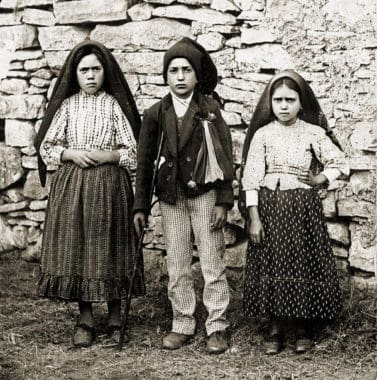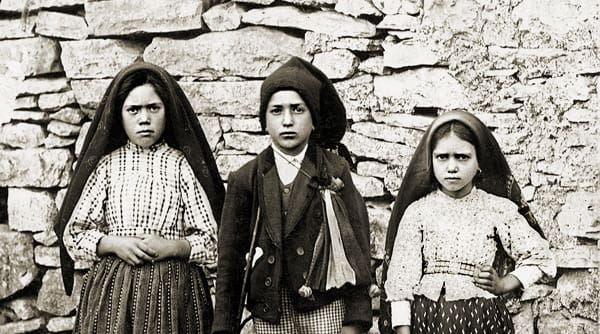Dear Father John, I understand that we need to defer to the judgment of the Church on matters of private revelations. It only stands to reason that the Church has the wisdom of thousands of years behind it and is very capable of guiding us in these cases. Even so, I feel drawn to dig deeper into Medjugorje and even what I have read about Garabandal. Is this instinct wrong or harmful to my faith? Surely there were people who believed and were totally committed to the reality of Fatima before it was officially approved. I am not asking if you agree with what is alleged to have happened in these places, but what are wise guidelines I might use as I evaluate these and other private revelations and whether or not I might adopt any specific devotional practices related to them? I might also say that I am completely committed to submit to the magisterial directives on these kinds of things. Thanks for your help.
In our first post, we considered briefly two spiritual principles in helping to answer the question: the workings of the Holy Spirit and how the Church views such revelations and devotions.
What Should You Do?
 Having briefly considered these two principles – the Church is always young and alive and sending out new branches of devotion and evangelization, and the Holy Spirit will never contradict himself – we can now venture to answer your question.
Having briefly considered these two principles – the Church is always young and alive and sending out new branches of devotion and evangelization, and the Holy Spirit will never contradict himself – we can now venture to answer your question.
You are feeling drawn to “dig deeper” into some relatively new Marian devotions. How do you know if this is from the Holy Spirit, and if it is from the Holy Spirit, how can you know how far to go in your involvement with devotions that have not been officially approved (or disapproved) by the Magisterium?
In the first place, I would encourage you to read our earlier post on the discernment of spirits. But I would say you can look at two indicators to see whether this desire is from God, or whether it is simply a distracting curiosity. I mention these indicators in your case, though I can imagine other cases in which the indicators would be different.
Check Two Indicators
The first indicator would be to examine your own conscience to see if you are currently living the life of grace – regularly receiving the sacraments, engaging in mental prayer on a regular basis, doing spiritual reading frequently, overcoming habitual sin, and growing in the virtues of patience, charity, and mercy. If not, then I would recommend focusing on those bread-and-butter spiritual disciplines (and maybe finding a spiritual director to help you) before launching out into other devotions. The second indicator would have to do with the desire you are experiencing to “dig deeper.” If you have been experiencing this desire in a quiet but strong way over an extended period of time, then you should probably act on it.
But how deep should you dig? How far should you go? As long as your interest bolsters and fosters in your heart and mind the fundamental Christian virtues of faith, humility, charity, and obedience (to God’s will as expressed by the Commandments, the duties of your state in life, and the teachings and discipline of the Church), continue to develop it. But if you find yourself becoming obsessed, putting more emphasis on the private revelations than the Church’s public and universal teachings and means of spiritual growth, and indelicately (and disrespectfully) pressuring other people into trying to jump on your new found bandwagon, then you will need to pull back and reevaluate.
Guideposts to Stay on Track
The Catechism summarizes the main reference points that we all need to keep in mind when dealing with new, private revelations, and I would encourage you to keep this number (CCC #67) in mind:
Throughout the ages, there have been so-called “private” revelations, some of which have been recognized by the authority of the Church. They do not belong, however, to the deposit of faith. It is not their role to improve or complete Christ’s definitive Revelation, but to help live more fully by it in a certain period of history. Guided by the Magisterium of the Church, the “sensus fidelium” knows how to discern and welcome in these revelations whatever constitutes an authentic call of Christ or his saints to the Church. Christian faith cannot accept “revelations” that claim to surpass or correct the Revelation of which Christ is the fulfillment, as is the case in certain non-Christian religions and also in certain recent sects which base themselves on such “revelations.”
For Further Reading
For further reading you may find useful this book by Fr. Benedict Groeschel, A Still Small Voice. And, since your inquiry mentioned Marian apparitions explicitly, you may find this short essay of mine interesting as well: Straight Talk about Marian Apparitions.
+
Art for this post on private revelations: Detail of Lucia Santos, Jacinta and Francisco Marto, the three children whom the Virgin Mary revealed her famous “three secrets” in Fátima, Portugal, attributed to Joshua Benoliel, official photographer of King Carlos I of Portugal, 1917, PD-US author’s life plus 80 years or less, published in the U.S. prior to January 1, 1923, Wikimedia Commons.


